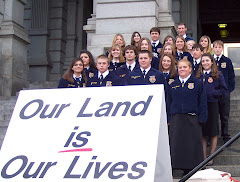The economy of Southeastern Colorado has always been land and water based. While peaks in the energy cycle have driven times of great prosperity in Walsenburg and Trinidad with coal at the turn of the century and gas more recently, agriculture has always provided the sustainable economic baseline. Both economic drivers require land.
Looking forward, land will remain central to the local economy as high energy costs drive alternative energy development. Wind and solar will provide addition jobs and economic stimulus to the region. These alternative energies are compatible with existing agricultural production. Jobs in Colorado’s clean energy economy grew more than twice as fast as overall jobs between 1998 and 2007, according to the Pew Charitable Trust. Witness the wind turbine factory under construction in Pueblo. People will always eat; agriculture will remain a stable economic platform as food security becomes a priority in an un-stable world. Agriculture also maintains a beautiful and healthy landscape that will draw people and industry as the northern front-range trends toward pavement and congestion.
The Pinon Canyon struggle is about Southeast Colorado land but this struggle is a symptom of a larger problem. The money and political power of urban areas threatens to extract more rural resources. Water, like land, is a cornerstone of agriculture and the explosive growth on the front-range has an unquenchable thirst. Western Slope water, Lower Arkansas Valley water, and Lower Platte Valley water will move to the front range in the coming years. Individually, the power of rural communities is small. However, in unison these communities have a chance to find solutions to these resource problems that do not destroy the rural agricultural economies.
skip to main |
skip to sidebar
also visit us @ www.pinoncanyon.com



No comments:
Post a Comment